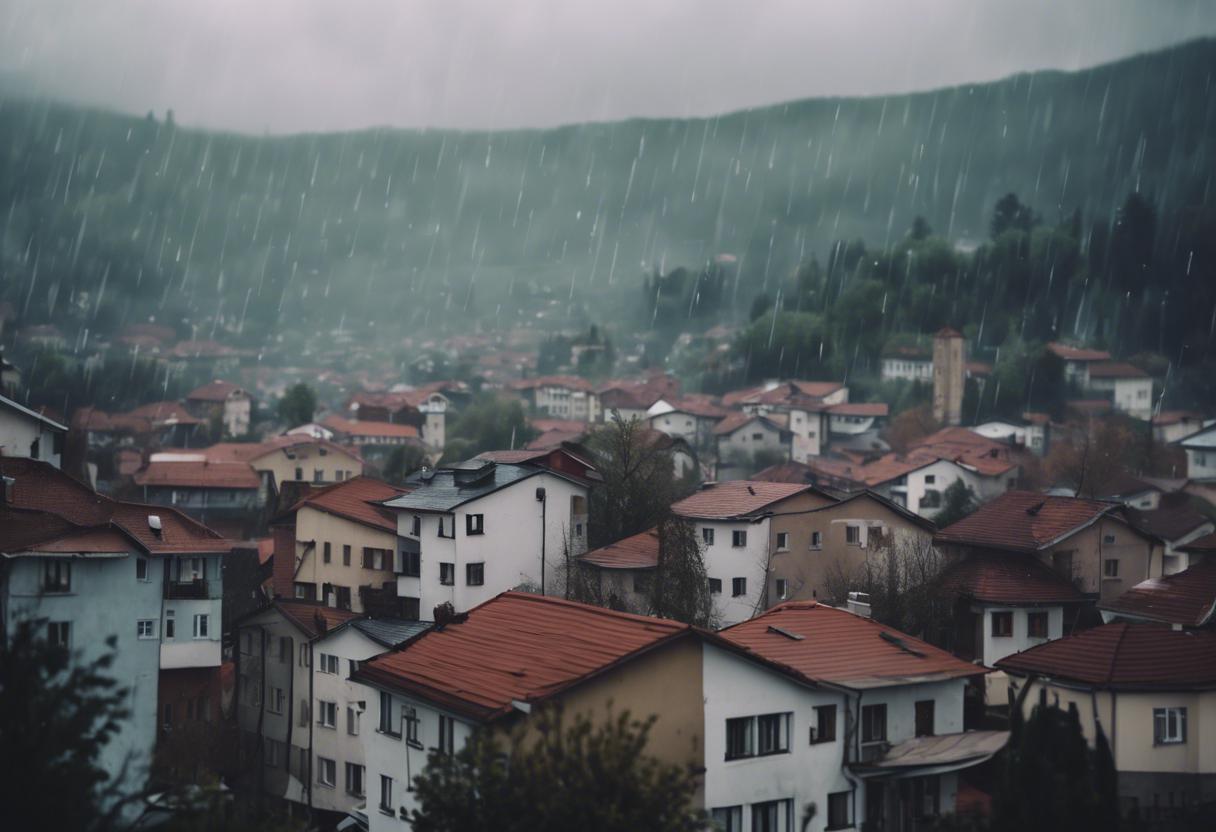Bosnia has been powerfully impacted by a severe rainstorm that occurred overnight, resulting in the loss of at least 14 lives and causing heavy flooding in a few towns and villages across the central and southern regions of the nation. There are still reports of several missing individuals from the country’s south, and because of the closure of roads and power cuts to homes, rescuers have called for the help of the army and local volunteers.
Darko Juka, a representative for the local government in Jablanica, a southern town, confirmed the death count standing at 14. He emphasised that these figures only include bodies found by rescue workers so far and that the final toll is yet to be determined. Reminiscing about the 1992-95 war that led to the country’s devastation, Mr Juka expressed his distress over the prevailing crisis, describing the chaos as deeply distressing.
Zukan Helez, the Defence Minister, informed N1 regional television that the army has been deployed for help and that information about casualties is continually coming in. He also mentioned their top priority is rescuing those who are alive and are trapped in houses due to landslides.
Meanwhile, a woman, who was expecting, tragically lost her unborn child after her rescue from the floods and subsequent transportation to a regional hospital in Mostar. Doctors are now fighting to save her life. In a separate incident, a young child was rescued successfully and admitted to the hospital.
Emergency services in the towns of Jablanica and Kiseljak reported a power outage overnight and a significant disruption in mobile phone services. Further, the Jablanica fire station stated that due to the closure of roads and railway lines, their town was entirely cut off. The state rescue service, in a statement, informed about the blocked railway and the current inability to enter or leave Jablanica. While landline connections are functional, there is no signal for mobile phones. They advised residents to stay away from the waterlogged streets.
Human-induced climate change boosts rainfall intensity due to the ability of warm air to hold more moisture. This summer witnessed an unparalleled rise in temperatures for an extended period in the Balkans, resulting in severe drought. The excessively parched land is responsible for impeding the soak up of floodwaters, according to scientific reports.
Aerial footage aired on Bosnian media reveals towns and villages completely drowned in water. Dramatic scenes of damaged roads and muddy torrents were shared on social media platforms. Visual evidence indicates that a prominent road connecting Sarajevo to the Adriatic coast via Jablanica alongside a railway line was swept away into a river due to a massive landslide.
The civil protection service reported many people are at risk due to extensive floods and landslides. There are accounts of casualties, numerous injuries and missing people. The authorities are advising residents to stay on higher floors of buildings. There have been incidents of the rapid filling of building’s lower floors with water, sweeping away pets and vehicles.
Strong winds and extreme rains were also encountered in the neighbouring country of Croatia. As a result, various roads were shut, and the capital city, Zagreb, was gearing up for the bursting of the banks of the elevated Sava river. The southern Adriatic Sea’s heavy winds have disrupted the road traffic while heavy rainfall-induced flash floods are posing a threat to several Croatian towns and villages.
In Montenegro, positioned south of Bosnia, flash floods triggered by heavy rainfall were reported. This steered to some villages becoming isolated and the flooding of roads and homes.

